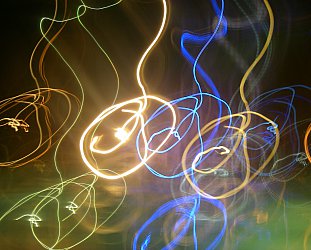Graham Reid | | 2 min read

The old British music hall song She Was Poor But She Was Honestcame with a singalong chorus: “It’s the same the whole world over, it’s the poor what gets the blame. It’s the rich what gets the pleasure, isn’t it a blooming shame?”
More than a century on that refrain is still true.
Media coverage of the widening chasm between the have-nots and the have-lots; rising food prices and living costs; housing becoming more expensive; conservative politicians cheerleading for thrusting entrepreneurs and dismissing unfortunates for lacking ambition; verbal abuse of frontline workers in the Covid battle . . .
Add in Ukraine and “it’s the same the whole world over”.
It will come as little comfort to New Zealanders that the same problems we face are echoed in England, Scotland, the US . . . and just about everywhere.
Here in humid Singapore where we are now, Covid remains a serious concern -- although cases have dropped right back to levels seen late last year. The society remains masked-up in indoor public places (and many people remain so outdoors) and we have downloaded the scan-in app TraceTogether.
People are not just compliant but will call others to account for failure to observe these mandates. In large shopping malls and places with major foot traffic such as MRT stations there are often people in uniform to check TraceTogether use.
While Ukraine gets considerable coverage, the geo-political compass here turns towards more regional concerns, notably China and Sri Lanka.
A major feature in a recent Straits Times shone the spotlight on Sri Lanka where a plummeting currency, shortages of food, fuel and power -- as well as accusations of corruption in a government stacked with family members of President Gotabaya Rajapaksa -- has led to street protests and what the paper’s India correspondent called “a mutinous mood”.
I doubt this has registered on the radar of New Zealand news coverage, although China’s moves in the Solomon Islands were briefly reported.
But it has already slipped down the totem pole.
Here it is viewed as yet more evidence of China’s expansionist policies which have seen the assimilation of Tibet, the tightened grip on Hong Kong and the increasing tension over the independence of Taiwan, where there are discussions about extending the four-month compulsory military training for men over 18.
If some measure of President Vladimir Putin’s hubris was to have Ukraine back under Russian control as his legacy, the grinding war there has ensured it is already tainted.
Chinese premier Xi Jinping has seen many predecessors talking up the reunification with Taiwan only to depart defeated by it. He may not be so willing to join their company.
While no one needs fall for “the domino theory”, the Chinese influence in Melanesia via the Solomon Islands has resonated strongly in this part of the world where their sway is warily monitored.
As Denny Roy, senior fellow at the East-West Center in Honolulu, wrote in a lengthy piece in the Straits Times, “China has put Oceania on notice”.
Yet Martin Wolf of the Financial Times in an equally detailed piece reproduced locally notes, “America has fought a series of foreign wars in recent decades, not China . . . the US has 800 military bases abroad, China has just one”.
This kind of important discussion is seldom written about in New Zealand, a country having a recent association with the Solomons in terms of peace-keeping.
So, it’s the same the whole world over?
In some things, certainly. In others, not so much.





post a comment